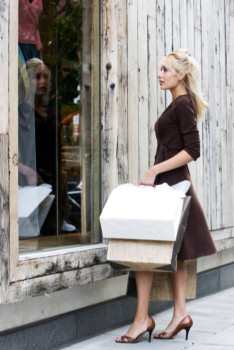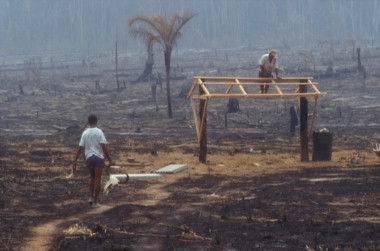peninsula P2053 pencil P3482 pencil P3530 pendulum P3840 penknife P3931 penalty P4651 penalty area P4652 penis P5053 pensioner P5227
PHRASES
Pasamos los fines de semana en casa.  We spend the weekends at home . (ENG ) (ES ) (0011)           | ||||||||||||||||||||||||||||||||||||||||||||||||||||||||||||||||||||||||||||||||||||||||||||||||||||||||||||||||||||||||||||||
¿Qué ha pasado?  What happened ? (ENG ) (ES ) (0122)           | ||||||||||||||||||||||||||||||||||||||||||||||||||||||||||||||||||||||||||||||||||||||||||||||||||||||||||||||||||||||||||||||
Abre la puerta y echa un vistazo.  Open the door and take a look . (ENG ) (ES ) (0127)           | ||||||||||||||||||||||||||||||||||||||||||||||||||||||||||||||||||||||||||||||||||||||||||||||||||||||||||||||||||||||||||||||
Sus ojos son brillantes y penetrantes.  Her eyes are bright and penetrating . (ENG ) (ES ) (0243)           | ||||||||||||||||||||||||||||||||||||||||||||||||||||||||||||||||||||||||||||||||||||||||||||||||||||||||||||||||||||||||||||||
Hoy he gastado mucho dinero.  I spent a lot of money today . (ENG ) (ES ) (0256)           | ||||||||||||||||||||||||||||||||||||||||||||||||||||||||||||||||||||||||||||||||||||||||||||||||||||||||||||||||||||||||||||||
Estas fresas son muy caras.  These strawberries are really expensive . (ENG ) (ES ) (0308)           | ||||||||||||||||||||||||||||||||||||||||||||||||||||||||||||||||||||||||||||||||||||||||||||||||||||||||||||||||||||||||||||||
Abren el mapa.  They spread open the map . (ENG ) (ES ) (0414)           | ||||||||||||||||||||||||||||||||||||||||||||||||||||||||||||||||||||||||||||||||||||||||||||||||||||||||||||||||||||||||||||||
El oro es muy caro.  Gold is very expensive . (ENG ) (ES ) (0435)           | ||||||||||||||||||||||||||||||||||||||||||||||||||||||||||||||||||||||||||||||||||||||||||||||||||||||||||||||||||||||||||||||
Por favor, abra la boca.  Please open your mouth . (ENG ) (ES ) (0452)           | ||||||||||||||||||||||||||||||||||||||||||||||||||||||||||||||||||||||||||||||||||||||||||||||||||||||||||||||||||||||||||||||
Por favor, abra la puerta.  Please open the door . (ENG ) (ES ) (0543)           | ||||||||||||||||||||||||||||||||||||||||||||||||||||||||||||||||||||||||||||||||||||||||||||||||||||||||||||||||||||||||||||||
Hay un bolígrafo en el escritorio.  There is a pen on the desk . (ENG ) (ES ) (0635)           | ||||||||||||||||||||||||||||||||||||||||||||||||||||||||||||||||||||||||||||||||||||||||||||||||||||||||||||||||||||||||||||||
Este mes sus gastos han superado el límite.  This month is expenses have exceeded the limit . (ENG ) (ES ) (0727)           | ||||||||||||||||||||||||||||||||||||||||||||||||||||||||||||||||||||||||||||||||||||||||||||||||||||||||||||||||||||||||||||||
El anfitrión anunció la apertura de la reunión.  The host announced the opening of the meeting . (ENG ) (ES ) (0771)           | ||||||||||||||||||||||||||||||||||||||||||||||||||||||||||||||||||||||||||||||||||||||||||||||||||||||||||||||||||||||||||||||
El partido se ha suspendido por la lluvia.  The game has been suspended due to rain . (ENG ) (ES ) (0839)           | ||||||||||||||||||||||||||||||||||||||||||||||||||||||||||||||||||||||||||||||||||||||||||||||||||||||||||||||||||||||||||||||
No tiene dinero.  He is penniless . (ENG ) (ES ) (0884)           | ||||||||||||||||||||||||||||||||||||||||||||||||||||||||||||||||||||||||||||||||||||||||||||||||||||||||||||||||||||||||||||||
El 4 de julio es el Día de la Independencia en Estados Unidos.  The fourth of July is Independence Day in the U .S . (ENG ) (ES ) (0891)           | ||||||||||||||||||||||||||||||||||||||||||||||||||||||||||||||||||||||||||||||||||||||||||||||||||||||||||||||||||||||||||||||
Está calculando sus gastos.  He is calculating his expenses . (ENG ) (ES ) (0973)           | ||||||||||||||||||||||||||||||||||||||||||||||||||||||||||||||||||||||||||||||||||||||||||||||||||||||||||||||||||||||||||||||
Esta tienda ya está abierta al público.  This shop is now open for business . (ENG ) (ES ) (1115)           | ||||||||||||||||||||||||||||||||||||||||||||||||||||||||||||||||||||||||||||||||||||||||||||||||||||||||||||||||||||||||||||||
Hay pingüinos en la Antártida.  There are penguins in Antarctica . (ENG ) (ES ) (1169)           | ||||||||||||||||||||||||||||||||||||||||||||||||||||||||||||||||||||||||||||||||||||||||||||||||||||||||||||||||||||||||||||||
Los gastos de este mes han disminuido.  Living expenses for this month have decreased . (ENG ) (ES ) (1198)           | ||||||||||||||||||||||||||||||||||||||||||||||||||||||||||||||||||||||||||||||||||||||||||||||||||||||||||||||||||||||||||||||
Aquí nunca pasan cosas raras.  No unusual things ever happen here . (ENG ) (ES ) (1235)           | ||||||||||||||||||||||||||||||||||||||||||||||||||||||||||||||||||||||||||||||||||||||||||||||||||||||||||||||||||||||||||||||
Hay muchos lápices de colores.  There are many colored pencils . (ENG ) (ES ) (1354)           | ||||||||||||||||||||||||||||||||||||||||||||||||||||||||||||||||||||||||||||||||||||||||||||||||||||||||||||||||||||||||||||||
Se cobran intereses como penalización por las facturas atrasadas.  Interest is charged as a penalty for overdue bills . (ENG ) (ES ) (1414)           | ||||||||||||||||||||||||||||||||||||||||||||||||||||||||||||||||||||||||||||||||||||||||||||||||||||||||||||||||||||||||||||||
El trigo ha madurado.  The wheat has ripened . (ENG ) (ES ) (1508)           | ||||||||||||||||||||||||||||||||||||||||||||||||||||||||||||||||||||||||||||||||||||||||||||||||||||||||||||||||||||||||||||||
Se fueron de acampada a campo abierto.  They went camping in the open country . (ENG ) (ES ) (1511)           | ||||||||||||||||||||||||||||||||||||||||||||||||||||||||||||||||||||||||||||||||||||||||||||||||||||||||||||||||||||||||||||||
La Asamblea General de las Naciones Unidas ha abierto su nueva sesión.  The UN General Assembly is open . (ENG ) (ES ) (1655)           | ||||||||||||||||||||||||||||||||||||||||||||||||||||||||||||||||||||||||||||||||||||||||||||||||||||||||||||||||||||||||||||||
¿Qué color de bolígrafo prefieres?  What color pen do you prefer ? (ENG ) (ES ) (1924)           | ||||||||||||||||||||||||||||||||||||||||||||||||||||||||||||||||||||||||||||||||||||||||||||||||||||||||||||||||||||||||||||||
El pingüino es la mascota del equipo.  The penguin is the mascot of the team . (ENG ) (ES ) (2219)           | ||||||||||||||||||||||||||||||||||||||||||||||||||||||||||||||||||||||||||||||||||||||||||||||||||||||||||||||||||||||||||||||
El bolígrafo está entre las páginas del cuaderno.  The pen is between the pages of the notebook . (ENG ) (ES ) (2303)           | ||||||||||||||||||||||||||||||||||||||||||||||||||||||||||||||||||||||||||||||||||||||||||||||||||||||||||||||||||||||||||||||
Los niños son muy dependientes de sus padres.  Children are very dependent on their parents . (ENG ) (ES ) (2324)           | ||||||||||||||||||||||||||||||||||||||||||||||||||||||||||||||||||||||||||||||||||||||||||||||||||||||||||||||||||||||||||||||
Ella abre la caja.  She opens the box . (ENG ) (ES ) (2372)           | ||||||||||||||||||||||||||||||||||||||||||||||||||||||||||||||||||||||||||||||||||||||||||||||||||||||||||||||||||||||||||||||
El bolígrafo escribe en negro.  The pen writes in black . (ENG ) (ES ) (2392)           | ||||||||||||||||||||||||||||||||||||||||||||||||||||||||||||||||||||||||||||||||||||||||||||||||||||||||||||||||||||||||||||||
Esta es su compensación.  This is your compensation . (ENG ) (ES ) (2463)           | ||||||||||||||||||||||||||||||||||||||||||||||||||||||||||||||||||||||||||||||||||||||||||||||||||||||||||||||||||||||||||||||
Están abriendo cartas.  They are opening letters . (ENG ) (ES ) (2467)           | ||||||||||||||||||||||||||||||||||||||||||||||||||||||||||||||||||||||||||||||||||||||||||||||||||||||||||||||||||||||||||||||
Están abriendo nuevos terrenos.  They are opening up new land . (ENG ) (ES ) (2472)           | ||||||||||||||||||||||||||||||||||||||||||||||||||||||||||||||||||||||||||||||||||||||||||||||||||||||||||||||||||||||||||||||
Este plan se ha suspendido temporalmente.  This plan is temporarily suspended . (ENG ) (ES ) (2491)           | ||||||||||||||||||||||||||||||||||||||||||||||||||||||||||||||||||||||||||||||||||||||||||||||||||||||||||||||||||||||||||||||
Se siente muy deprimida (por una acumulación de sentimientos reprimidos).  She feels very depressed (by an accumulation of pent-up feelings) . (ENG ) (ES ) (2563)           | ||||||||||||||||||||||||||||||||||||||||||||||||||||||||||||||||||||||||||||||||||||||||||||||||||||||||||||||||||||||||||||||
El suministro de energía depende de la extracción de petróleo.  The supply of energy depends on the mining of oil . (ENG ) (ES ) (2634)           | ||||||||||||||||||||||||||||||||||||||||||||||||||||||||||||||||||||||||||||||||||||||||||||||||||||||||||||||||||||||||||||||
Papá ha abierto una clínica dental.  Dad opened a dental clinic . (ENG ) (ES ) (2722)           | ||||||||||||||||||||||||||||||||||||||||||||||||||||||||||||||||||||||||||||||||||||||||||||||||||||||||||||||||||||||||||||||
Aquí ha ocurrido un accidente de tráfico.  A traffic accident happened here . (ENG ) (ES ) (2731)           | ||||||||||||||||||||||||||||||||||||||||||||||||||||||||||||||||||||||||||||||||||||||||||||||||||||||||||||||||||||||||||||||
Ha abierto los ojos.  She opened her eyes . (ENG ) (ES ) (2873)           | ||||||||||||||||||||||||||||||||||||||||||||||||||||||||||||||||||||||||||||||||||||||||||||||||||||||||||||||||||||||||||||||
Hay muchos bolígrafos en el contenedor de bolígrafos.  There are many pens in the pen container . (ENG ) (ES ) (3210)           | ||||||||||||||||||||||||||||||||||||||||||||||||||||||||||||||||||||||||||||||||||||||||||||||||||||||||||||||||||||||||||||||
Hago los deberes a lápiz.  I do my homework in pencil . (ENG ) (ES ) (3299)           | ||||||||||||||||||||||||||||||||||||||||||||||||||||||||||||||||||||||||||||||||||||||||||||||||||||||||||||||||||||||||||||||
The door would not open . | La puerta no se abría. | Nobody knows what will happen next . | Nadie sabe qué pasará después.
His wife opened the door for him . Su esposa le abrió la puerta.
We spent more money than was expected . Gastamos más dinero de lo esperado.
Why does everything happen to me ? ¿Por qué me pasa todo?
These shoes are too expensive . Estos zapatos son demasiado caros.
He opened the door . Él abrió la puerta .
No matter what happens , I won't be surprised . Pase lo que pase, no me sorprenderé.
You must keep your eyes open . Debes mantener los ojos abiertos.
And spent that day with him . Y pasó ese día con él.
He is still dependent on his parents . Todavía depende de sus padres.
Please tell me what happened to him . Por favor, dime qué le pasó.
We are dependent on each other . Somos dependientes unos de otros.
Such a thing can't happen in japan . Tal cosa no puede suceder en Japón.
We could not open the box anyhow . No pudimos abrir la caja de todos modos.
Can I use your pen ? Puedo usar tu bolígrafo ?
Please pick up the pen from the floor . Por favor, recoja el bolígrafo del suelo.
It is expensive to live in japan . Es caro vivir en Japón.
I'd like inexpensive seats , if possible . Me gustaría asientos baratos, si es posible.
I paid no less than a hundred dollars for this pen . Pagué nada menos que cien dólares por este bolígrafo.
You may depend on it that it won't happen again . Puede estar seguro de que no volverá a suceder.
What if he should happen to come late ? ¿Y si llegara tarde?
It really depends on when . Realmente depende de cuándo.
She spent her life in pursuit of the truth . Pasó su vida en la búsqueda de la verdad.
What would happen ? Qué pasaría ?
I would like the least expensive one . Quisiera el menos costoso.
Do you know what happened ? Sabes lo que pasó ?
I spent two hours watching television last night . Anoche pasé dos horas viendo la televisión.
I spent three hours repairing the car . Pasé tres horas reparando el auto.
What happened to him ? Lo que le sucedió ?
It so happened that I had no money with me . Dio la casualidad de que no tenía dinero conmigo.
I asked him to open the window . Le pedí que abriera la ventana.
This plan will be very expensive to carry out . Este plan será muy costoso de llevar a cabo.
There is no knowing what may happen . No se sabe lo que puede pasar.
While staying in paris , I happened to meet him . Mientras estaba en París, lo conocí por casualidad.
The murder case happened in this way . El caso del asesinato sucedió de esta manera.
I tried in vain to open it . Intenté en vano abrirlo.
Strange things happened on her birthday . Sucedieron cosas extrañas en su cumpleaños.
There is no knowing what will happen next . No se sabe lo que sucederá después.
It is impossible to know what will happen in the future . Es imposible saber qué pasará en el futuro.
Try not to spend more money than is necessary . Trate de no gastar más dinero del necesario.
He discovered how to open the box . Descubrió cómo abrir la caja.
This diver's watch is a little too expensive . Este reloj de buceo es un poco demasiado caro.
Open the window . Abrir la ventana .
The accident happened before my very eyes . El accidente ocurrió ante mis propios ojos.
I spent the whole day reading a novel . Pasé todo el día leyendo una novela.
His answer depends on his mood . Su respuesta depende de su estado de ánimo.
When did america become independent of england ? ¿Cuándo se independizó América de Inglaterra?
I am now independent of my father . Ahora soy independiente de mi padre.
You can depend on his help . Puedes contar con su ayuda.
Give us a true account of what happened . Danos un relato verdadero de lo que pasó.
Open the window . It's baking hot in here . Abrir la ventana . Hace mucho calor aquí.
Do you happen to know his name ? ¿De casualidad sabes su nombre?
She spends much money on books . Gasta mucho dinero en libros.
I worked with mr spencer for a year in new york . Trabajé con el Sr. Spencer durante un año en Nueva York.
The accident happened on a rainy day . El accidente ocurrió en un día lluvioso.
This expedition will be expensive . Esta expedición será costosa.
At the new year , we spend a lot of time with our family . En el año nuevo, pasamos mucho tiempo con nuestra familia.
A piano is expensive , but a car is more expensive . Un piano es caro, pero un coche es más caro.
Don't leave it open . No lo dejes abierto.
The accident happened through his carelessness . El accidente ocurrió por su descuido.
This door will not open . Esta puerta no se abrirá.
I have to look for my pen . Tengo que buscar mi bolígrafo. |